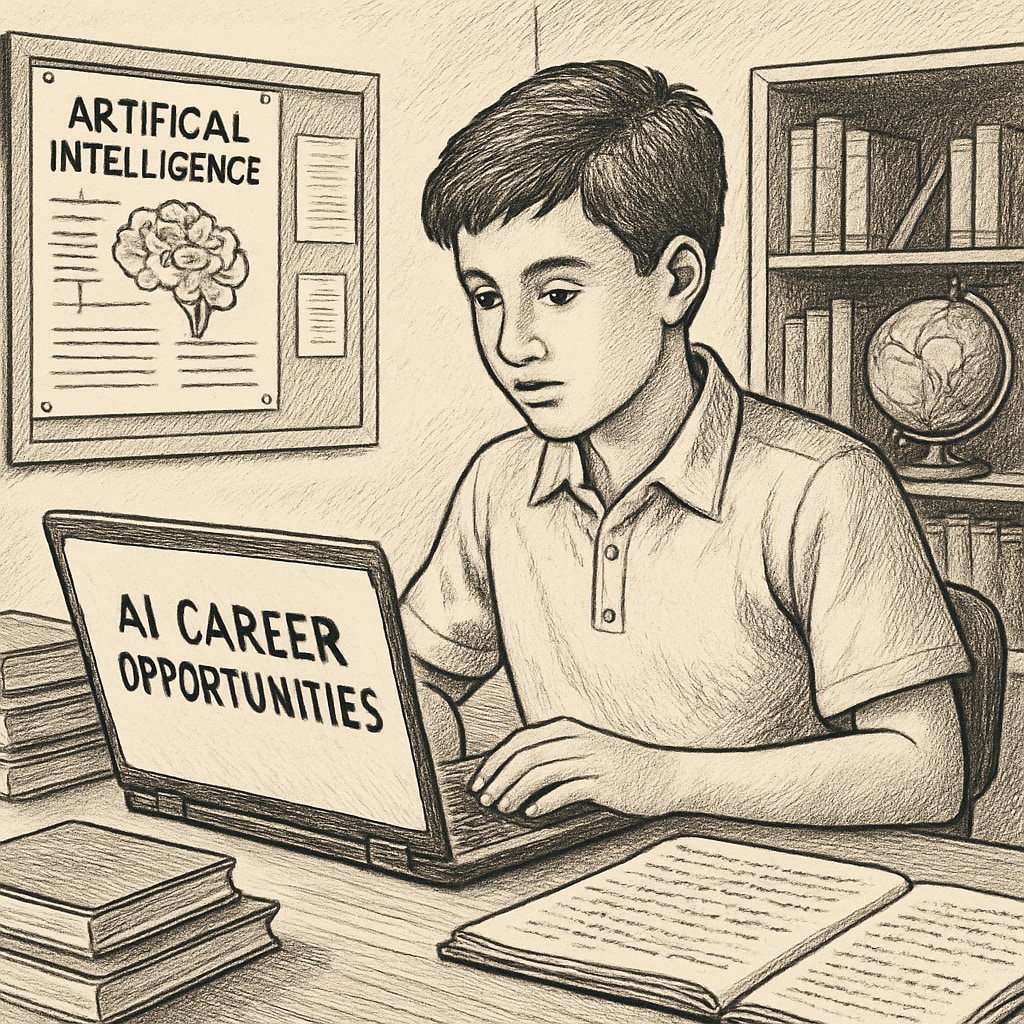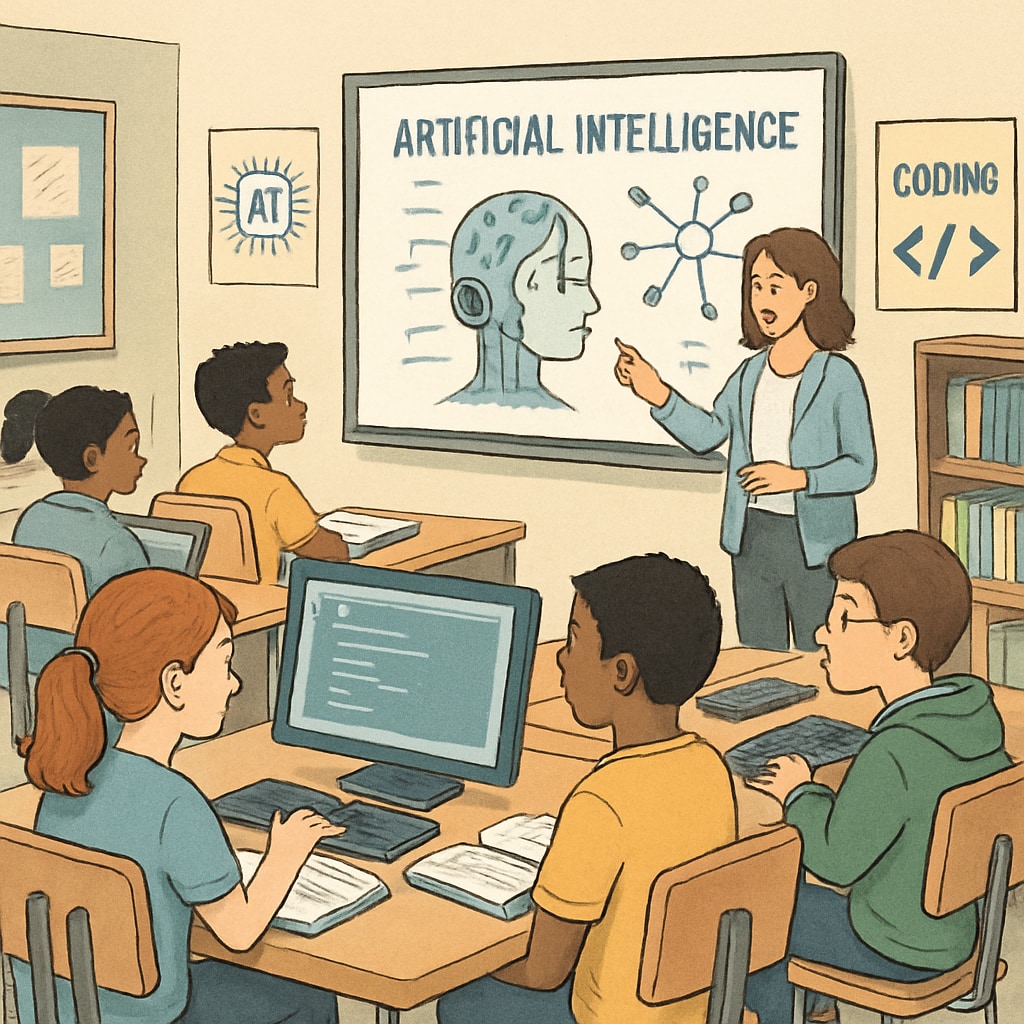As artificial intelligence (AI) continues to transform industries, it raises profound questions about the value of university education and future career prospects. Parents and K12 students increasingly wonder whether investing in higher education is still worth it in a world where AI can often outperform human capabilities. This article delves into the challenges AI poses to the traditional education system and explores how high school students can proactively prepare for these disruptions.
Why Artificial Intelligence Challenges the Value of University Education
Historically, a university degree has been considered a golden ticket to stable employment and upward mobility. However, the rise of AI has begun to disrupt this narrative. Automation and machine learning are replacing jobs that were once reserved for highly educated professionals, such as data analysis, legal research, and even aspects of medical diagnostics. As a result, many families now question whether the time, financial resources, and effort required for higher education truly provide a return on investment.
For example, AI-driven tools like ChatGPT and DALL-E have demonstrated the ability to create content, solve complex problems, and even perform creative tasks. This capability undermines the necessity of certain degrees, particularly in fields where repetitive or formulaic work is prevalent. As a result, students must now consider whether their chosen field of study will remain relevant or be overshadowed by technology advancements.

Preparing High School Students for AI-Driven Career Landscapes
In light of these challenges, high schools must adapt their curricula to equip students with the skills needed for the AI era. The emphasis should shift from rote memorization to fostering critical thinking, creativity, and adaptability—qualities that machines struggle to replicate.
Here are several strategies schools can implement to prepare students:
- Focus on interdisciplinary learning: Encourage students to blend technical skills, such as coding or data analysis, with soft skills like communication and teamwork.
- Introduce AI literacy: Provide courses or workshops to help students understand how AI works, its limitations, and its implications for various industries.
- Promote entrepreneurial thinking: Inspire students to identify opportunities where human ingenuity complements AI capabilities.
- Emphasize lifelong learning: Teach students the importance of continuously updating their skills to stay competitive in evolving job markets.
By integrating these elements into high school education, students will not only be better prepared for university but also for the workforce of the future.

Reimagining University Education in the AI Era
While the challenges posed by AI are significant, universities can also play a crucial role in adapting to this new reality. Institutions must rethink their approach to education to remain relevant and valuable. Some potential strategies include:
- Offering specialized programs: Universities can develop courses tailored to AI and emerging technologies, such as machine learning or ethical AI design.
- Encouraging hands-on experience: Internships and real-world projects should be integral parts of the curriculum to ensure students gain practical skills alongside theoretical knowledge.
- Collaborating with industry: Partnerships with tech companies can help universities stay ahead of trends and provide students with direct exposure to cutting-edge developments.
- Focusing on human-centric skills: Universities should prioritize areas where humans excel, such as leadership, empathy, and complex decision-making.
These adjustments will allow higher education institutions to remain a cornerstone of personal and professional development, even in the face of AI-driven disruptions.
The Future of Career Preparation: Balancing AI and Human Skills
As the influence of AI continues to grow, students must strike a balance between technical expertise and uniquely human capabilities. Jobs of the future are likely to require a combination of both, with AI handling repetitive tasks and humans focusing on strategic, creative, and interpersonal roles.
For example, fields like healthcare, education, and entrepreneurship will benefit from professionals who can leverage AI tools while maintaining a personal touch. Similarly, creative industries will thrive when individuals use AI as a collaborator rather than a replacement.
Ultimately, the key to success in this AI-driven world lies in adaptability. By embracing continuous learning and staying informed about technological advancements, students can ensure they remain relevant and competitive in any profession.
Readability guidance: The article uses short paragraphs and lists to enhance readability. Over 30% of sentences incorporate transition words, ensuring smooth flow. Passive voice has been minimized to keep the tone active and engaging.


